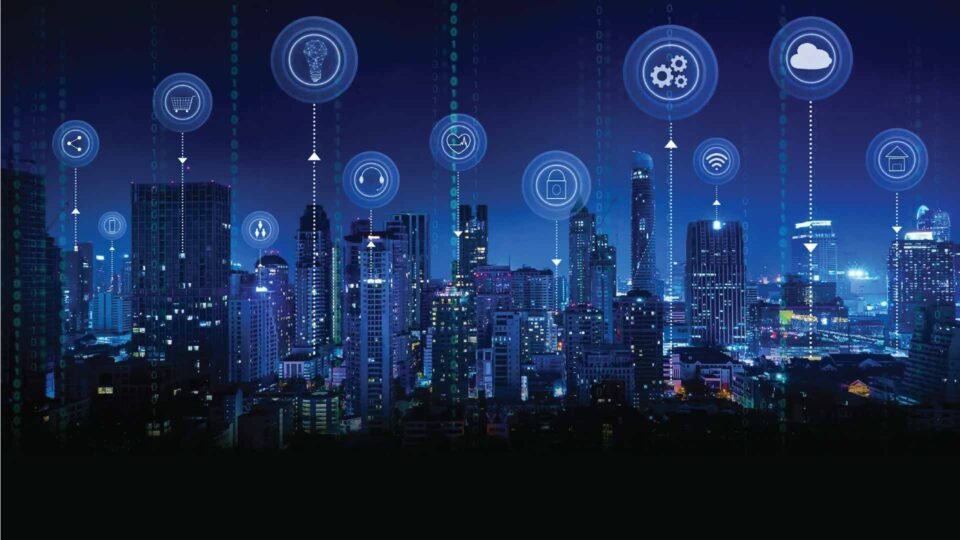Many decarbonization strategies in cities are enhanced, enabled, and controlled by smart city technologies and will be essential for reaching global net zero targets
Cities account for more than 50% of the planet’s population and are responsible for more than 70% of global carbon emissions. To combat this, decarbonization strategies are being employed by cities around the world. According to global technology intelligence firm ABI Research, smart cities technologies will a critical asset for this transformation.
“The principles behind smart city technologies, such as increasing efficiency, better data management, and better decision making are also essential for decarbonization and reaching net-zero goals. Technologies such as digital twins, smart streetlights, micro-grids, computer vision, smart city management platforms, and micro-mobility are all growing in popularity and can help with decarbonization,” explains Dominique Bonte, Vice President, End Markets at ABI Research. “The technologies can enhance decarbonization through more efficient energy use, better project planning, predictive maintenance, greener mobility options (such as e-bikes and e-scooters), and greater urban management through better data management.”
There are many examples of cities deploying smart city technologies to enable decarbonization including London’s recent expansion of the ULEZ (Ultra Low Emission Zone) which uses a variety of technologies such as ANPR (automatic number plate readers), CCTV cameras, and environmental sensors to assess the impact of the new regulations. Another example is Tengah, Singapore. It is Singapore’s innovation district and uses a variety of technologies to support decarbonization including a centralized cooling system, smart streetlights, smart waste removal, a mobile app for citizens’ smart meters, and mass rapid transport with a car-free city center. These strategies not only have a direct impact on energy consumption by also encourage and enable citizens to make better choices to help the city decarbonize.
“Cities have a great opportunity to influence how we reach net-zero goals through their ability to regulate, purchase, and influence their services. By opting for smarter, more resilient solutions they can reach and maintain their decarbonization goals to increase the health of their citizens and the wider community,” Bonte concludes.
These findings are from ABI Research’s Urban Decarbonization Strategies and the Role of Smart Cities application analysis report. This report is part of the company’s Smart Urban Infrastructure and Sustainable Technologies research services, which include research, data, and ABI Insights. Based on extensive primary interviews, Application Analysis reports present in-depth analysis on key market trends and factors for a specific technology.
Visit AITechPark for cutting-edge Tech Trends around AI, ML, Cybersecurity, along with AITech News, and timely updates from industry professionals!

